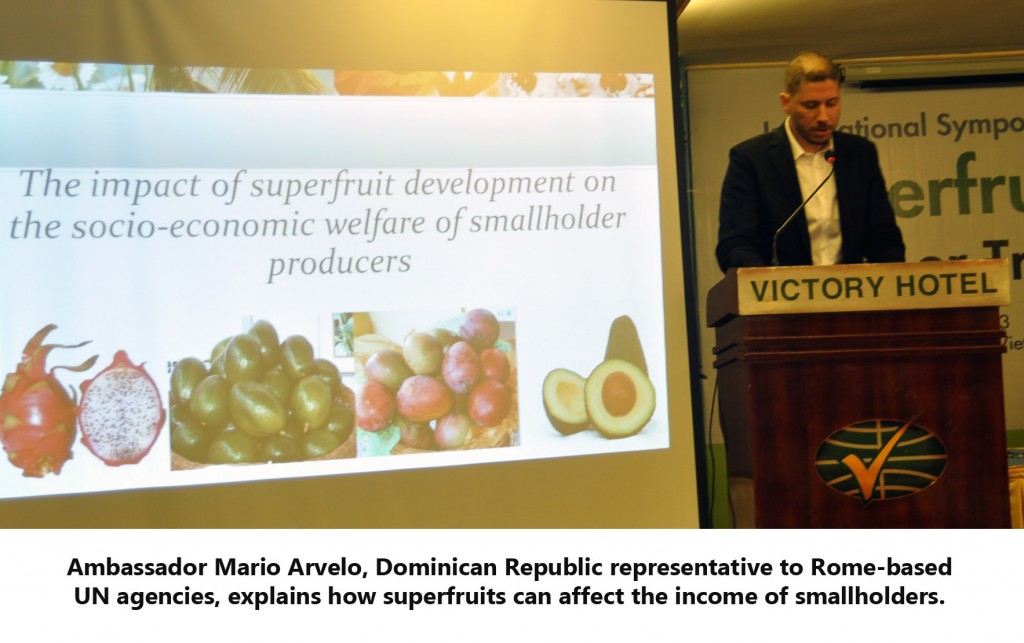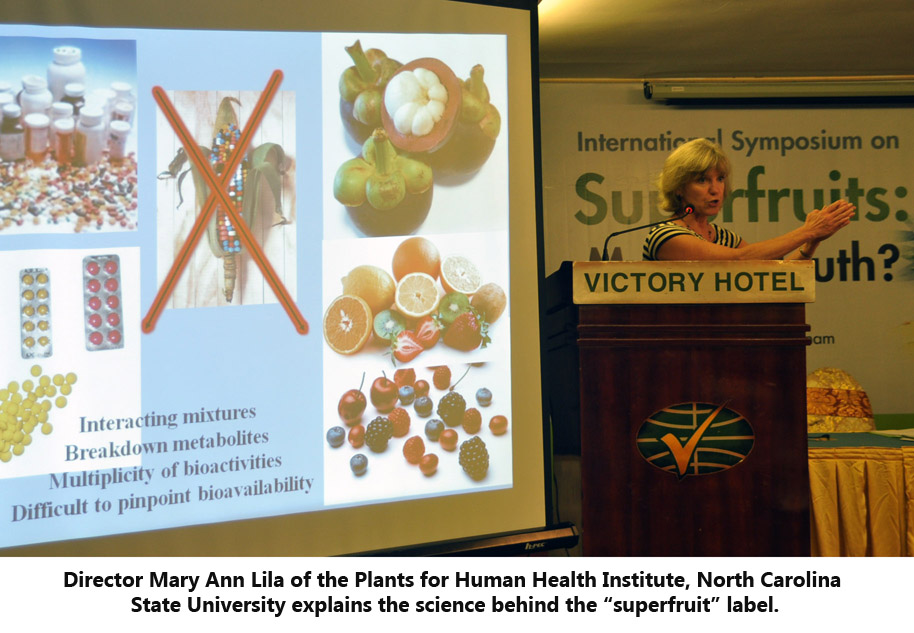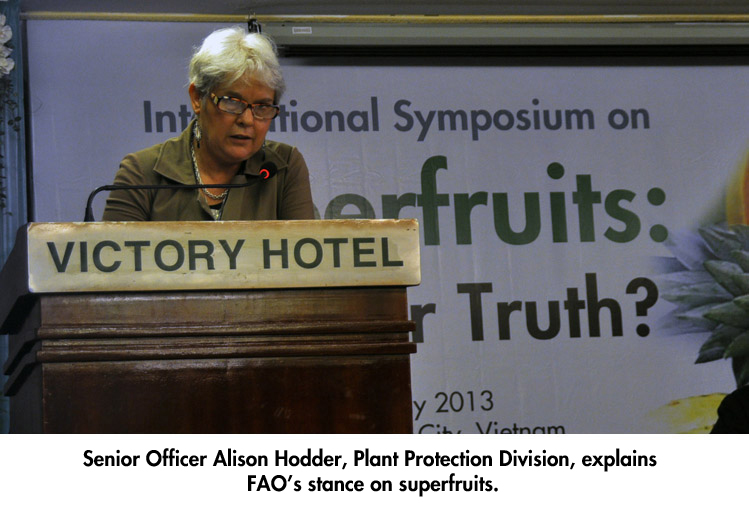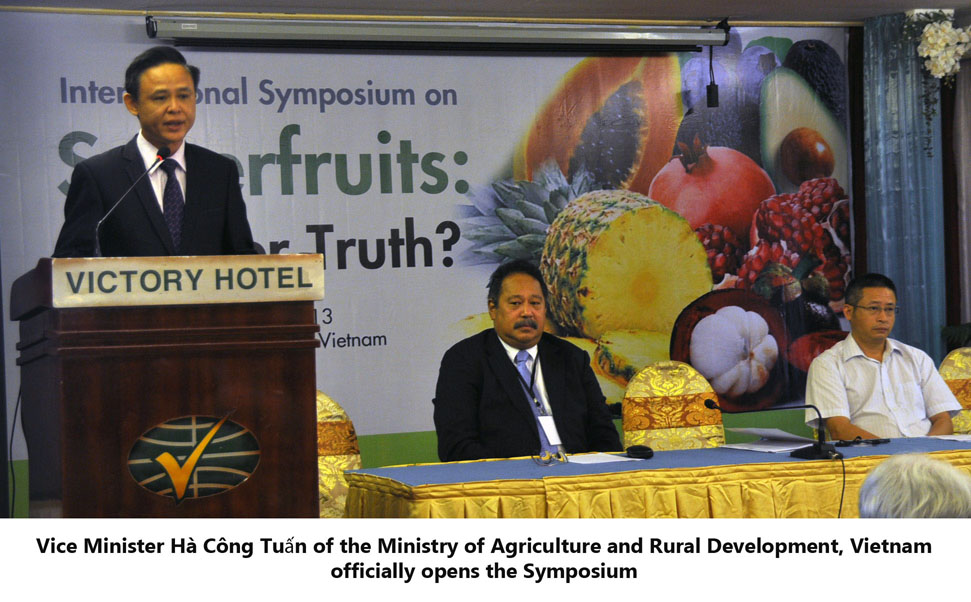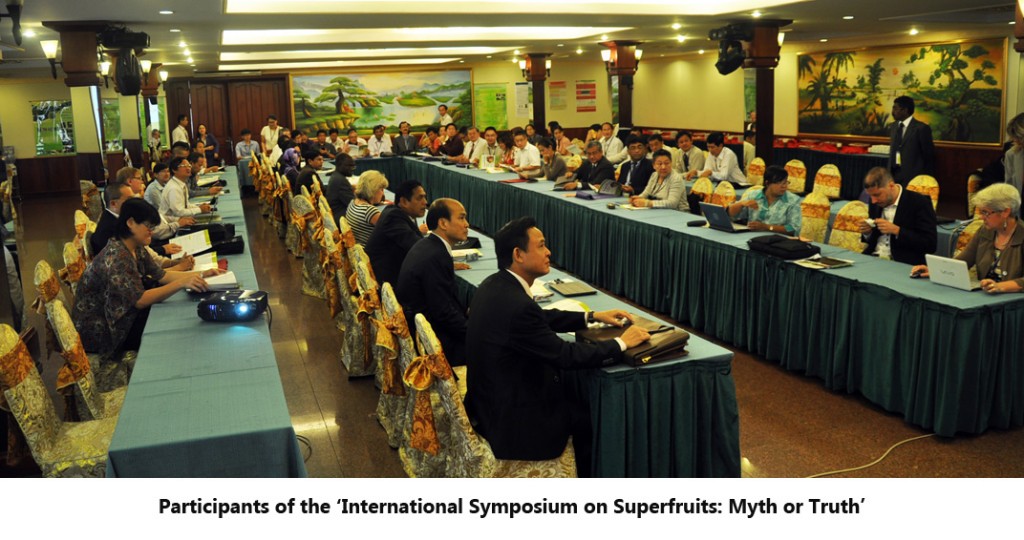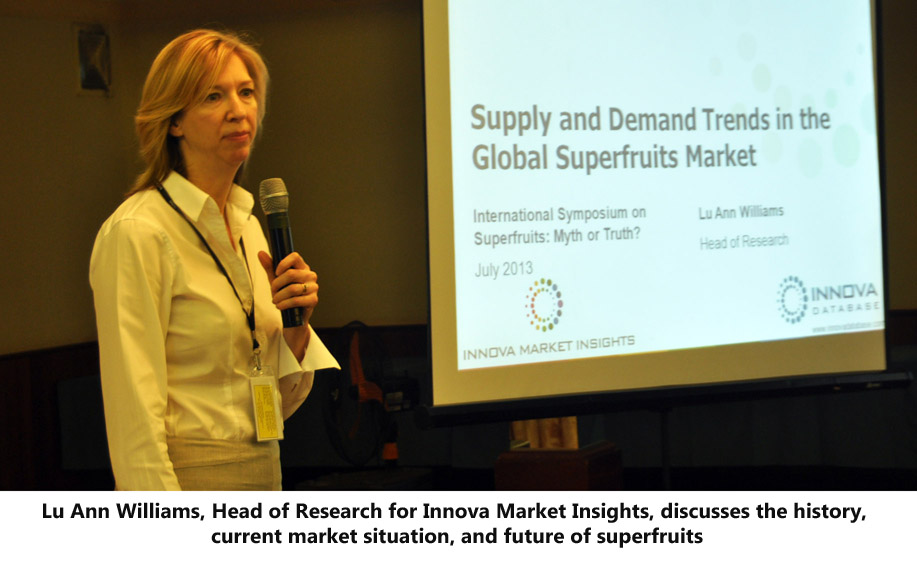
The Symposium aimed to define superfruits, present scientific findings on the properties of defined and potential superfruits, assess marketing opportunities, discuss promotion and branding, and share information on market development, production, demand and value chain analyses.
Ninety participants from 18 countries attended the symposium, including Australia, Nigeria, Sudan, Dominican Republic, Fiji, Thailand, Malaysia, Japan, Thailand, Netherlands, and USA. Participants represented international organizations, government agencies, academic and research institutions, and the private sector.
Thirty-three oral presentations were delivered in two concurrent sessions, while 10 posters presentations were displayed in the exhibition area. Presentations encompassed 3 major topics: 1) Scientific evidence for nutritional characteristics of potential superfruits such as anti-oxidant capacity, anti-aging, and anti-inflammatory effects; 2) Agronomic practices such as fruit quality and safety, crop physiology, and postharvest management; and 3) Market developments such as value chain analysis, smallholder integration, and promotion.
“Micronutrient malnutrition is a persistent problem, affecting approximately two billion people,” according to Kaison Chang, Secretary of the FAO Intergovernmental Group on Bananas and Tropical Fruits during his Welcome Address.
“In addition to conventional nutrients, fruits contain thousands of beneficial phytochemicals, with putative effects ranging from improving intelligence to increased longevity. This Symposium constitutes an essential forum to derive a definition of ‘superfruits’, examine the nutritional and economic benefits, and develop an action plan to ensure production and trade of tropical fruits are profitable and sustainable,” added Chang.
TFNet Vice Chairperson Dr. Yi Ganjun representing the Chairperson of TFNet, delivered a welcome address followed by the official opening address by the Vice Minister Hà Công Tuấn of the Ministry of Agriculture and Rural Development, Vietnam.
Generally, symposium participants agreed that the superfruit label is an innovative marketing strategy to sell fruit products, targeted for consumers who demand healthy food options that can prevent chronic diseases and ultimately increase longevity. Whether a fruit is super or not remains debatable because the precise effects of phytochemicals on humans are difficult to measure.
However, “superfruits have established their position in the market and are here to stay,” said Lu Ann Williams, Head of Research for Innova Market Insights, Netherlands. Developing countries should capitalize on branding and marketing tropical fruits as the next superfruit.
The potential of superfruits in enhancing food security and generating income to smallholders in developing countries is immense. The Symposium also discussed interventions to fully integrate smallholders in the value chain, including organization of farmer groups, infrastructure support, and appropriate policies.
Notable presentations include “Superfruits: a gimmick or scientifically supported? How science impacts the marketplace or vice versa” by Director Mary Ann Lila of the Plants for Human health Institute, North Carolina State University; “Review of the scientific evidence regarding the attributes of superfruits and agronomic considerations“ by Senior Officer Alison Hodder of the Plant Protection and Protection Division, FAO; “Supply and demand trend in global superfruits market” by Lu Ann Williams, Head of Research, Innova Market Insights, Netherlands; and “The impact of superfruit development on the socio-economic welfare of smallholder producers” by Ambassador Mario Arvelo of Dominican Republic to UN Rome-based Agencies, representing the Dominican Republic Vice Minister of Agriculture.
Outcomes of the symposium will be discussed at the next FAO Intergovernmental meeting on bananas and tropical fruits.
After the sessions, the participants visited the Southern Horticultural Research Institute (SOFRI), Director Nguyen Minh Chau elaborated on the profile and research programs of the institute. Participants then visited a sapote farm and a pitaya farm in the Mekong delta.
